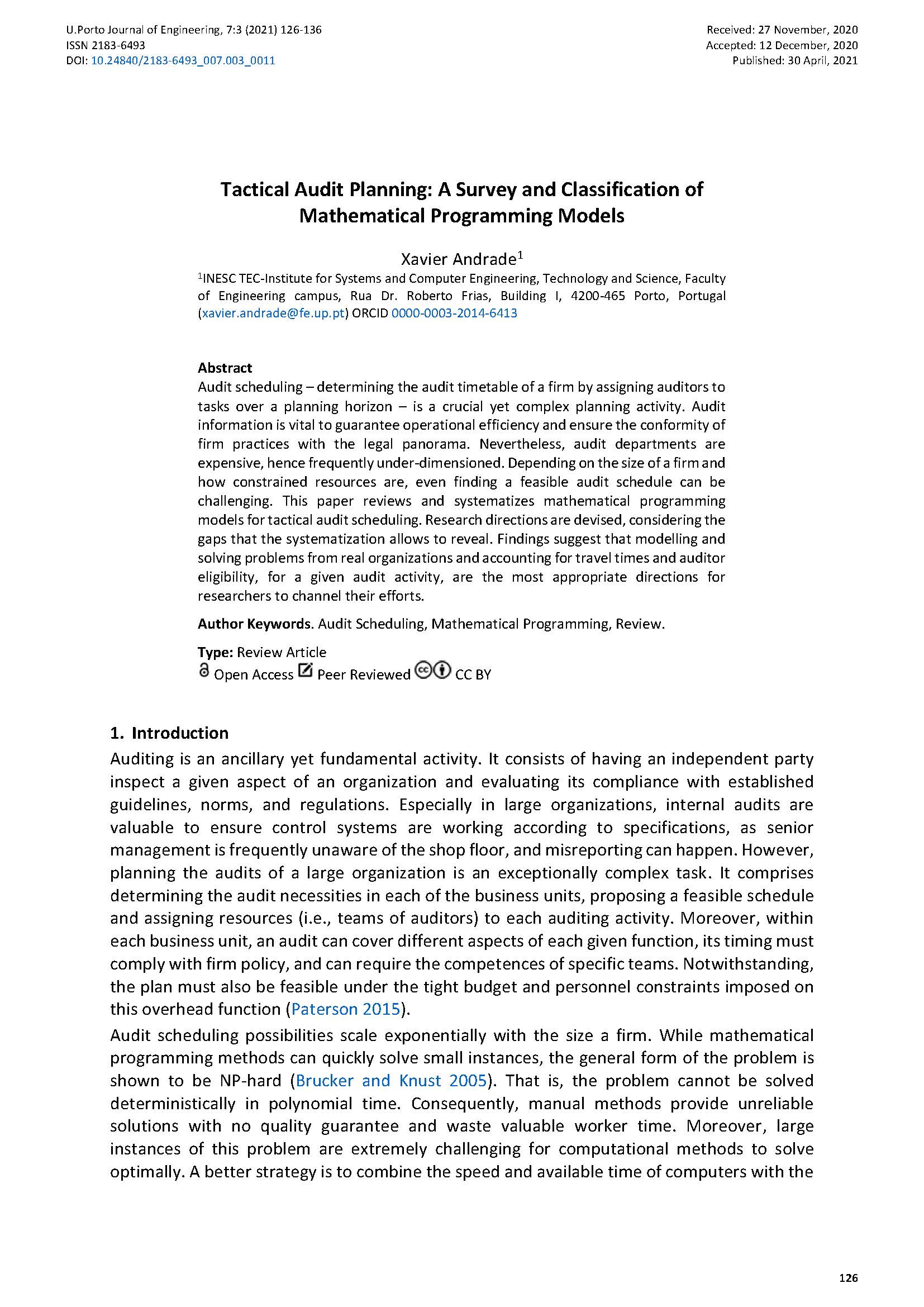Tactical Audit Planning A Survey and Classification of Mathematical Programming Models
Main Article Content
Abstract
Audit scheduling – determining the audit timetable of a firm by assigning auditors to tasks over a planning horizon – is a crucial yet complex planning activity. Audit information is vital to guarantee operational efficiency and ensure the conformity of firm practices with the legal panorama. Nevertheless, audit departments are expensive, hence frequently under-dimensioned. Depending on the size of a firm and how constrained resources are, even finding a feasible audit schedule can be challenging. This paper reviews and systematizes mathematical programming models for tactical audit scheduling. Research directions are devised, considering the gaps that the systematization allows to reveal. Findings suggest that modelling and solving problems from real organizations and accounting for travel times and auditor eligibility, for a given audit activity, are the most appropriate directions for researchers to channel their efforts.
Downloads
Article Details

This work is licensed under a Creative Commons Attribution 4.0 International License.
Authors who publish with this journal agree to the following terms:
- Authors retain copyright and grant the journal right of first publication with the work simultaneously licensed under a Creative Commons Attribution License that allows others to share the work with an acknowledgement of the work's authorship and initial publication in this journal.
- Authors grant the journal the rights to provide the article in all forms and media so the article can be used on the latest technology even after publication and ensure its long-term preservation.
- Authors are able to enter into separate, additional contractual arrangements for the non-exclusive distribution of the journal's published version of the work (e.g., post it to an institutional repository or publish it in a book), with an acknowledgement of its initial publication in this journal.
- Authors are permitted and encouraged to post their work online (e.g., in institutional repositories or on their website) prior to and during the submission process, as it can lead to productive exchanges, as well as earlier and greater citation of published work (See The Effect of Open Access).

